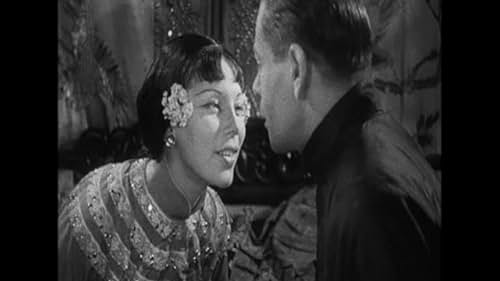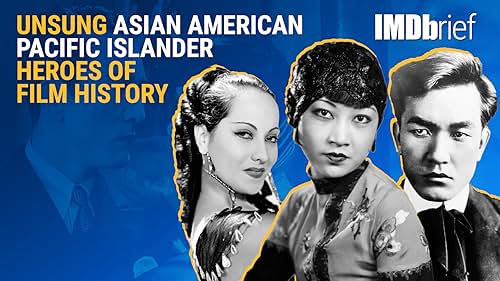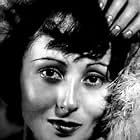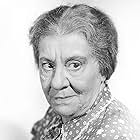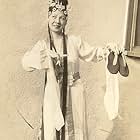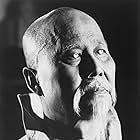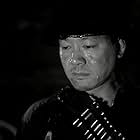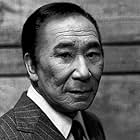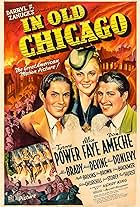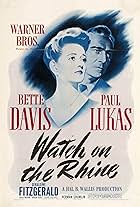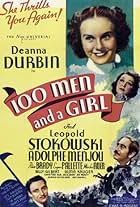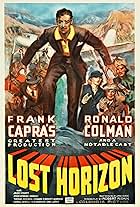Although married Chinese farmers Wang and O-Lan initially experience success, their lives are complicated by declining fortunes and lean times, as well as the arrival of the beautiful young ... Read allAlthough married Chinese farmers Wang and O-Lan initially experience success, their lives are complicated by declining fortunes and lean times, as well as the arrival of the beautiful young Lotus.Although married Chinese farmers Wang and O-Lan initially experience success, their lives are complicated by declining fortunes and lean times, as well as the arrival of the beautiful young Lotus.
- Won 2 Oscars
- 4 wins & 3 nominations total
- Revolutionary Army Captain
- (uncredited)
- Man
- (uncredited)
- Teahouse Dancer
- (uncredited)
- Chinese Girl
- (uncredited)
Storyline
Did you know
- TriviaSpecial effects experts were unable to produce an authentic-looking locust plague. Just as they were about to abandon the scene, they received word that a real locust plague was taking place several states away. A camera crew was rushed to the scene to capture it on film.
- Goofs(at around 2h 5 mins) Wang Lung is walking through the locust storm in his wheat field. He picks up a few men who have fallen down into the thick pile of locusts. In frustration, Wang shouts "I said save the wheat! Save it!" At this moment, a man dressed in 1937-era American clothing walks across the scene from left to right, at the top third of the screen. He is wearing a white hat and appears to be smoking a cigarette or cigar held in his left hand.
- Quotes
Wang Lung: [must sell his land to feed his family but the buyers take advantage of him] Thieves! Thieves! And well you know I must sell.
O-Lan: No! Not the land. We'll not sell the land. We'll keep it. We'll go south and when we return, we'll still have the land.
Uncle: But I've arranged it. I brought these men here. You MUST sell!
O-Lan: Is it your land? Did you buy it bit by bit? The land is our life... and it's better to go south... or die walking... than to give it to you for nothing.
- Crazy creditsIntroduction played with opening credits: The soul of great nation is expressed in the life of its humblest people. In this simple story of a Chinese farmer may be found something of a the soul of China - its humility, its courage, its deep heritage from the past and its vast promise for the future.
- ConnectionsEdited into Dragon Seed (1944)
Perhaps it's partly because the story was written by a westerner, Pearl Buck who got a Pulitzer Prize for her novel in 1932. Ms. Buck, daughter of Chinese missionaries, probably brought China closer to the consciousness of America than any other person. Not the political struggles of China, but the lives and toil of the every day people we find in The Good Earth. Unfortunately later on, Pearl Buck became an apologist for the Kuomintang China of Chiang Kai-Shek in all its virtues and excesses. The rest of her literary output never matched The Good Earth.
In The Sundowners there is a great description of comparing China to Australia by Peter Ustinov. When asked the difference, Ustinov said China was very big and very full and Australia was very big and very empty. That's what you see in The Good Earth, China very big and very full of people, more than she can deal with at times.
The Good Earth tells the story of Wang Lung (Paul Muni) as a young man who purchases a wife from a large house where she was a slave. The woman O-Lan (Luise Rainer) bears him two sons and sees him through all the good times and bad they have, drought, famine, revolution, and a climatic locust plague.
Luise Rainer won the second of two consecutive Oscars for portraying O-Lan. She may have set some kind of record in that it has to be the leading player Oscar performance with the least amount of dialog. Everything she does practically is done with facial expressions, her performance could have been on a silent film with very minimal subtitles. I think only John Mills in Ryan's Daughter had fewer words and he was playing a mentally retarded man.
Muni is not always appreciative of how supportive she is in that male dominated culture. Rainer helps in the field, bears and raises the kids, does the housework. When Muni becomes a man of property he takes a Chinese second trophy wife who causes him a lot of grief. Still Rainer stoically bears it all. Still Muni is not a bad man and it's a tribute to the film and his acting and Buck's writing that you don't hate him and the culture gap is bridged.
We've got a group of oriental players now who do more than just Kung Fu movies. I'm surprised The Good Earth of all films has not been remade at this point. I'll bet the Chinese government would even let some American company do it on an actual location.
Till then we've got this great classic to appreciate and enjoy.
- bkoganbing
- Aug 25, 2006
- Permalink
Details
- Release date
- Country of origin
- Official site
- Language
- Also known as
- Dobra zemlja
- Filming locations
- Cedar City, Utah, USA(backgrounds for locust sequence)
- Production company
- See more company credits at IMDbPro
Box office
- Budget
- $2,800,000 (estimated)
- Runtime2 hours 18 minutes
- Aspect ratio
- 1.37 : 1
Contribute to this page


